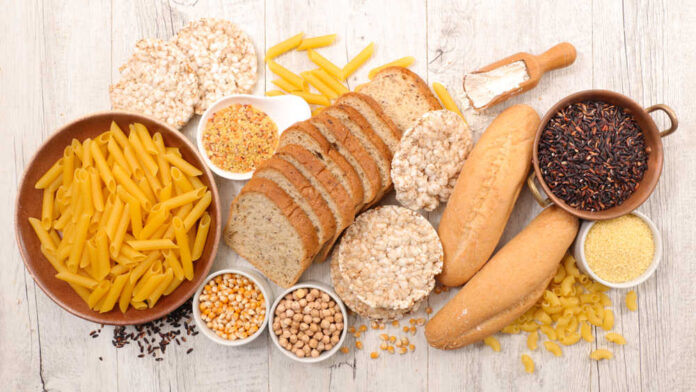
Gluten is a structural protein found in wheat, rye, and barley. It acts as a “glue” that helps keep bread and other baked goods together, maintaining their shape.
For people with celiac disease, their immune system overreacts to gluten as if it’s a dangerous toxin, causing damage to the small intestine.
This response can lead to diarrhea, abdominal pain, fatigue, weight loss, and the malabsorption of nutrients.
What Causes Celiac Disease?
Celiac disease appears to be caused by both genetic and environmental factors.
Several genetic markers have been linked to a predisposition for developing celiac disease, but this is not the only factor.
While the condition often manifests in early childhood, it can also develop in adulthood, even after years of eating gluten-containing foods with no ill effects.
There are a number of possible triggers that have been linked to the onset of celiac disease in adulthood, including:
- Pregnancy
- Viral infection
- Tissue damage
- Surgery
- Other autoimmune conditions
Currently, there are no known ways to prevent celiac disease. There was speculation that an infant’s exposure to gluten may play a role in its development, but experimental research has found no indication that this is the case.
How Is Celiac Disease Diagnosed?
Celiac affects approximately 1 in 100 people, and while awareness and diagnostic evaluation have improved significantly in recent decades, it is still considered an underdiagnosed condition.
This may be because the symptoms of celiac disease can be nonspecific and mimic those of other allergies and gastrointestinal disorders.
When symptoms suggest the possibility of celiac disease, your doctor should perform a serologic test. This is a blood test that can identify the presence of specific antibodies that are associated with celiac disease and definitively confirm the diagnosis.
Treating Celiac Disease
Celiac is a life-long condition, and there is currently no cure. The only treatment is a strict gluten-free diet, which can be challenging to maintain for some people.
Foods that typically contain gluten include:
- Wheat
- Rye
- Barley
- Bread
- Pasta
- Cereal
- Cookies
- Crackers
- Pastries
- Donuts
- Beer
Fortunately, the food industry has responded to the growing demand for gluten-free options, and there are now many delicious and nutritious foods available that are safe for people with celiac disease to eat. Look for “gluten-free” labels on food products and on the menu of many restaurants.
Celiac disease is a serious condition that can significantly impact your quality of life and can potentially be life-threatening if unmanaged.
If you think you may have celiac disease, it’s important to see your doctor to get a proper diagnosis and begin following a gluten-free diet as soon as possible.






















